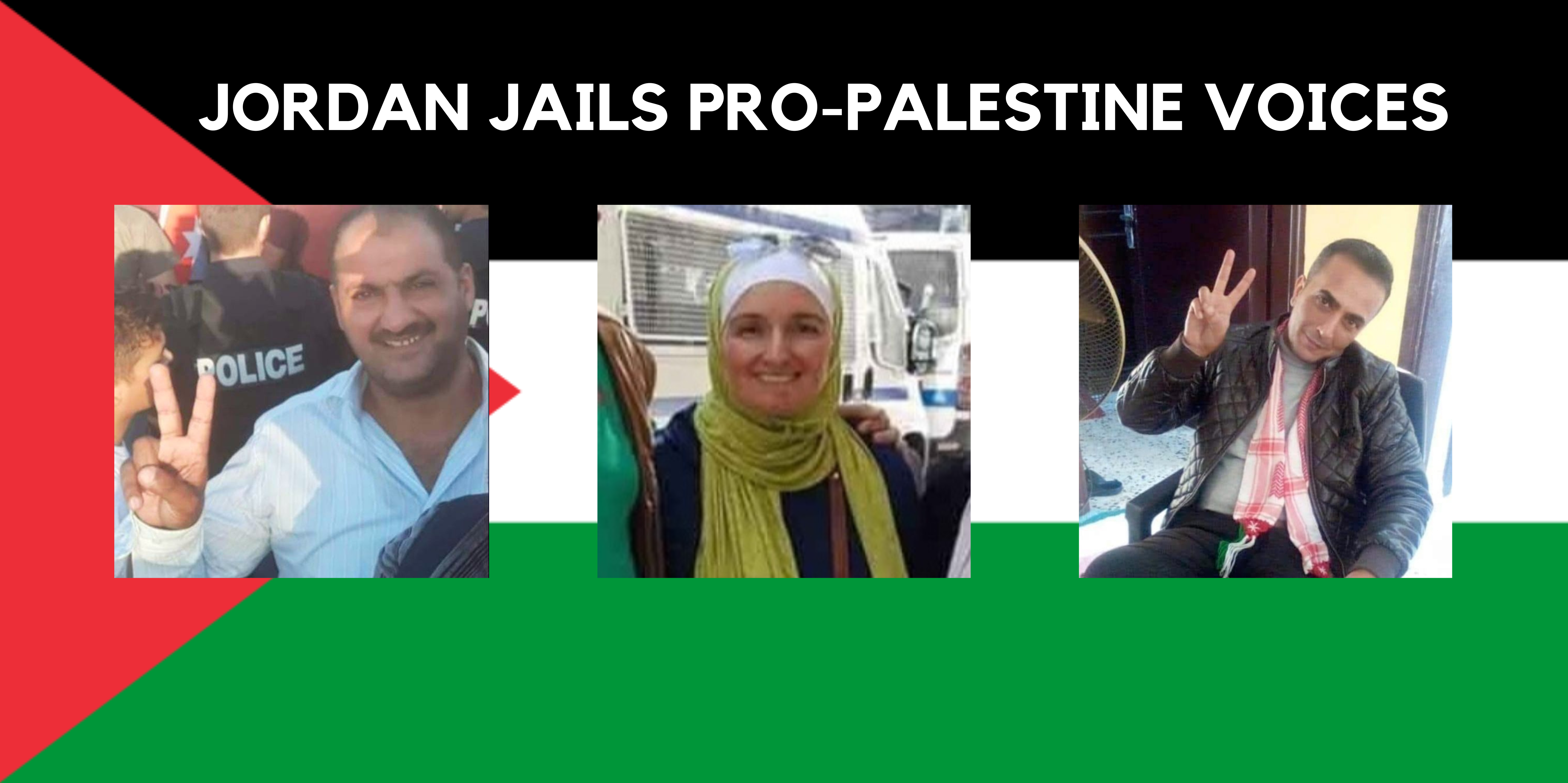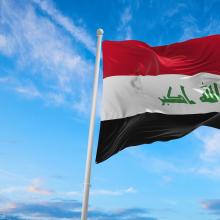December 19, 2024

Left to right: Kamil al-Zoubi, Fatima Shubeilat, Sameer Nemrawi.
MENA Rights Group strongly condemns the Jordanian authorities' ongoing crackdown on pro-Palestine activism and has appealed to United Nations (UN) experts, urging them to call for its immediate halt.
Since October 7, 2023, Jordanian activists, journalists and peaceful protestors have taken to social media and the streets to show support for Palestine and denounce the Jordanian government’s relations with Israel. However, this peaceful solidarity movement has been met with brutal repression by the Jordanian authorities.
Security forces have arrested over a thousand people participating in pro-Palestine protests and violently attacked peaceful demonstrators, including by firing tear gas into crowds and beating protestors using batons. Online users have also faced criminal charges for social media posts that expressed support for Gaza or criticised Jordan’s policies towards Israel, and some have been punished with imprisonment.
To enforce this crackdown, Jordanian authorities have primarily used the 2023 Cybercrime Law, which was heavily scrutinised by the UN. This law includes vaguely worded provisions that criminalise the dissemination of “false news” or content “targeting national security and community peace”. These imprecise legal terms enable the state to wield disproportionate control over speech, leading to censorship and arbitrary detentions. In fact, the UN Special Rapporteur on freedom of expression stated that such laws are incompatible with international standards and should be abolished.
The Jordanian government has also used the Penal Code to target peaceful pro-Palestine activists. Authorities have repeatedly invoked article 149, which penalizes acts that “undermine the political system”, and criminalises “slander” against public officials. Jordanian authorities have also charged peaceful protesters under article 165 of the Penal Code with “unlawful gathering”. Both of these articles violate Jordan’s obligations under the International Covenant on Civil and Political Rights.
Using the controversial Crime Prevention Law, authorities have routinely held protesters in administrative detention, i.e. without trial or charges. These detentions are imposed without judicial oversight and violate international human rights standards.
The General Intelligence Directorate (GID) and the Public Security Directorate (PSD) are the two primary actors enforcing these repressive laws. These security agencies have been responsible for carrying out arbitrary arrests, often without warrants, and subjecting detainees to ill-treatment, incommunicado detention, and prolonged interrogations without the presence of a lawyer. Such actions violate international human rights law and contribute to an environment of impunity for state actors.
Both the GID and PSD operate with minimal oversight, with the GID reporting directly to the King. This lack of accountability has enabled these agencies to act with impunity, particularly in targeting pro-Palestine voices.
On December 17, 2024, MENA Rights Group submitted a general allegation detailing the scale and human rights impact of this crackdown in Jordan to several UN Special Rapporteurs (SR). These include the SR on freedom of expression Irene Khan, the SR on freedom of association and peaceful assembly Gina Romero, the SR on human rights defenders Mary Lawlor, and the SR on the Occupied Palestinian Territories Francesca Albanese.
The allegation highlighted the plight of numerous peaceful activists and journalists who were charged under the repressive 2023 Cybercrime Law, the Penal Code and the Crime Prevention Law, including Kamil al-Zoubi, Sameer Nemrawi, Fatima Shubeilat and Hiba Abu Taha.
MENA Rights Group calls on the UN Special Rapporteurs to urgently address these violations directly with the Jordanian authorities. Jordan’s legal framework, particularly the Cybercrime Law, the Penal Code and the Crime Prevention Law, must be amended to align with international human rights standards. The ongoing repression of activists, journalists and peaceful protestors exercising their rights to freedom of expression and peaceful assembly must come to an end, and those arbitrarily detained must be immediately released. Jordanian authorities must also ensure that security agencies, including the GID and PSD, operate within the confines of the law and are held accountable for actions going against Jordan’s international obligations.






